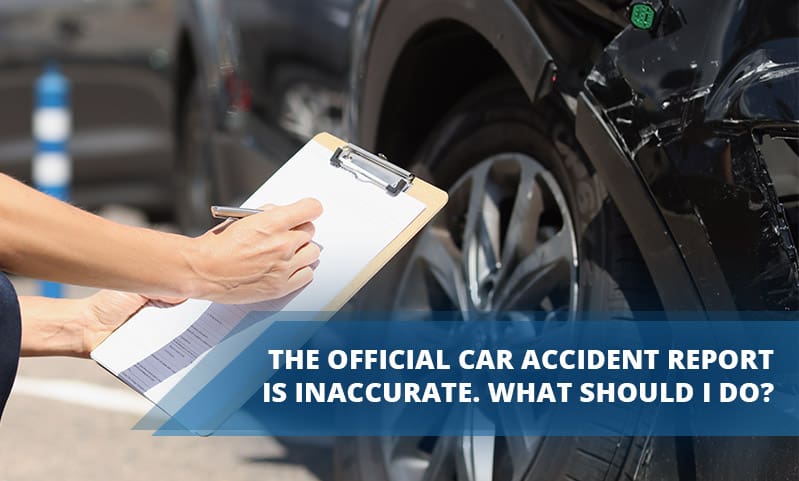An erroneous police accident report could adversely affect an injury claim. In New York, this report is usually admissible as evidence, if “the report is made based upon the officer’s personal observations and while carrying out police duties.”
This problem is very common. Police officers aren’t accident reconstruction professionals. They typically only use witness statements to piece together what happened. Additionally, if the victim died in the accident, the reporting officer usually only hears one side of the story.
Motorists cannot change the contents of a report, but they can ask the reporting officer to change the contents. They can also file an amended report with the DMV.
The best thing to do in these situations is work with a skilled lawyer. Attorneys make professional police report amendments. Furthermore, lawyers often commission supplemental reports that, in many cases, are more credible than police accident reports. Finally, when the case goes to court, a lawyer uses all this evidence to fight for you.
Minimizing Mistakes
Frequently, the best way to minimize mistakes on a police accident report is to say as little as possible. Only answer direct questions, think about your response, and answer them as concisely as possible.
Many car crash victims have undiagnosed head injuries and can’t think clearly. People with foggy minds often say inappropriate things.
Victims should never give statements to insurance adjusters for the same reason. Adjusters are trained to act compassionately and trick victims into saying things that favor the insurance company they represent.
Furthermore, victims don’t have a legal obligation to speak with the other insurance company’s representative. They might have to report the incident to their own companies, but a concise “I was in an accident, and I’ll provide more details later” usually suffices. Then, let lawyer handle any subsequent conversations.
Types of Police Report Errors
In 2022, the police officer turnover rate shot up 42 percent. So, reporting officers probably have little experience. Inexperience usually leads to the following two kinds of errors, which a knowledgeable attorney can highlight in court.
Factual Errors
Preparing a written report is very far down on the priority list for most first responders. The first order of business is securing the scene, followed by tending to injured victims. Usually, emergency responders write reports largely from memory, several hours or days later.
The lack of attention at the scene and time delay usually leads to factual errors in the report, such as:
- Witness statement transcripts,
- Vehicle, owner, and driver information,
- Injury reports, and
- Physical evidence found at the scene.
Your lawyer can set these records straight by amending the police report.
Narrative Errors
These mistakes aren’t as easy to correct. Many jurors believe a neutral police officer’s version of events is more reliable than an accident participant’s version of events.
While an amendment may be able to set factual errors straight, narrative errors are likely based on false assumptions.
We should point out that the police report narrative, although it’s an important piece of evidence, is only the officer’s opinion. Additionally, there’s a difference between a police officer’s fault determination and a court’s liability determination.
The “final score” in a personal injury case usually means compensation for economic losses, such as medical bills, and noneconomic losses, such as pain and suffering.
Accident Reconstruction Engineers
If the original car accident report is inaccurate, replacing it with an accident reconstruction engineer’s report might be the best approach.
To make their reports, these professionals carefully study all evidence, not just the evidence at the scene. These degreed professionals have much more credibility than well-meaning emergency responders.
Usually, accident reconstruction engineers charge nothing upfront for their services. These services typically include evaluating the case, preparing a report, and defending that report during a deposition or in court.
An errant police report doesn’t derail an accident claim. Contact Napoli Shkolnik for a free, no-obligation consultation.
